This article refers to the following topics: marijuana seedlings and light, lighting schedule, light setup, automatic watering system, fluorescent light, growing with led-lights, cannabis seedlings watering
In this article, you will find answers to the following questions: how long should cannabis seedlings be under light, does the seedling need light? Do seedlings need constant light? How often, and how much water needs a seedlings?
Hello there, fellow cultivation enthusiasts! I am thrilled to be sharing my years of hands-on experience and expertise in growing marijuana. This comprehensive guide focuses on nurturing seedlings with the perfect balance of light and water, a crucial aspect of cannabis growing. I am hopeful that by the end of this article, you’ll feel like you’ve had a satisfying and informative experience, armed with a wealth of practical knowledge to kickstart or improve your cannabis cultivation journey.
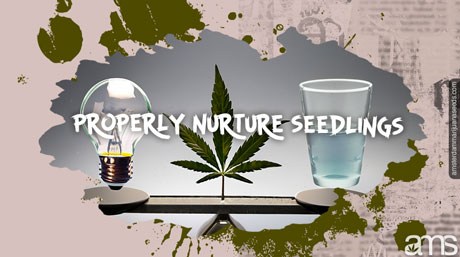
High-quality cannabis seeds genetics are of paramount importance when it comes to achieving successful and thriving marijuana cultivation. The genetic makeup of weed seeds plays a crucial role in determining the plant’s characteristics, such as its growth pattern, yield potential, resistance to pests and diseases, and even its aroma and flavor profiles. When you invest in premium cannabis seeds, you are setting the stage for a superior growing experience. By selecting reliable seeds, you ensure that you are working with a foundation that offers genetic stability, consistent performance, and the potential for exceptional results. The quality of your weed seeds directly impacts the overall success of your cultivation endeavor, making it essential to choose reputable suppliers and prioritize genetics that align with your desired outcomes. Look for reputable seed banks with high-grade genetics where you can buy weed seeds.
Properly germinating weed seeds, is a vital step in your growing journey. The germination process involves awakening the dormant potential of the seeds and coaxing them to sprout into healthy seedlings. To germinate seeds successfully, you need to create the ideal environment. Start by using a gentle and reliable method, such as the paper towel technique, which provides the optimal balance of moisture and oxygen necessary for germination. By providing a warm and moist environment, you encourage the marijuana seeds to initiate the growth process, allowing them to develop strong taproots and set the stage for vigorous growth. Remember, germination is a crucial phase where the potential of your seeds comes to life, so providing the right conditions and care is essential for a successful start.
When it comes to choosing cannabis seeds, you often encounter two main types: regular and feminized seeds. Regular seeds are produced through natural fertilization, resulting in a mix of male and female plants. On the other hand, feminized weed seeds are selectively bred to produce only female plants, eliminating the risk of male plants that could potentially pollinate your female plants. The choice between regular and feminized seeds largely depends on your cultivation goals and preferences. Regular seeds offer the opportunity for breeding and genetic experimentation, while feminized seeds provide a straightforward approach to ensure an all-female crop. Consider your specific needs and desired outcomes when deciding which type of seeds to incorporate into your growing endeavors.
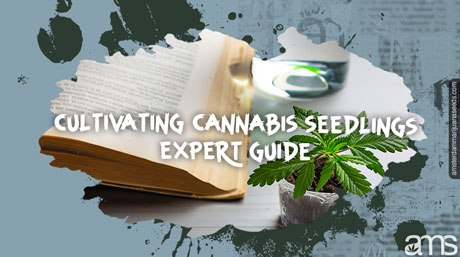
Another important consideration in cannabis cultivation is the choice between auto-flower and regular marijuana seeds. Autoflower weed seeds are specially bred to initiate flowering automatically based on age, rather than being dependent on specific light cycles. This characteristic makes them highly suitable for growers seeking a quicker harvest and those working with limited space or light control. In contrast, regular seeds follow the traditional photoperiod-dependent flowering cycle, requiring specific light schedules to induce flowering. Understanding the distinction between auto-flower and regular weed seeds allows you to tailor your cultivation approach to suit your specific requirements, whether it’s maximizing yield potential or adapting to a particular growing environment.
Every great journey begins with a single step. In the case of weed growing, it starts with selecting the right marijuana seeds. The quality of your seeds significantly influences the health, growth, and productivity of your plants. Hence, you must understand how to identify high-quality seeds, typically characterized by a firm shell and darker color. Remember, a little effort in choosing the right seeds can reward you with a bountiful harvest.
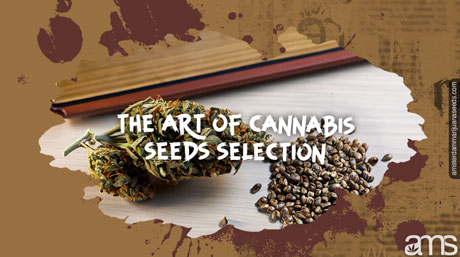
Once you’ve procured your high-quality marijuana seeds, the next significant step in cannabis growing is germination. The germination stage is critical because it involves bringing your seeds out of their dormant state and jump-starting the growth process. Keeping the environment warm and moist, but not waterlogged, is key during this stage. Techniques like the paper towel method can come in handy here, helping to maintain the right balance of moisture without risking the chance of drowning your seeds.
After your seeds have sprouted, one of the essential factors to consider when growing pot plants is lighting. In this section, we will delve deeper into the different types of grow lights and their correct usage. Seedlings require plenty of light, but the intensity, duration, and even the type of light significantly affect their growth. You will learn how to determine the optimal distance of lights from your plants and the importance of balancing light and dark periods for holistic plant growth.
Water is as crucial as light in the process of marijuana growing. It’s a vital part of the plant’s life, involved in nutrient transport and metabolic processes. However, watering your growing weed plants is not as straightforward as it might seem. In this section, we will explore the art of watering your seedlings, focusing on identifying the right watering schedule, the amount of water required, and signs of overwatering or underwatering.
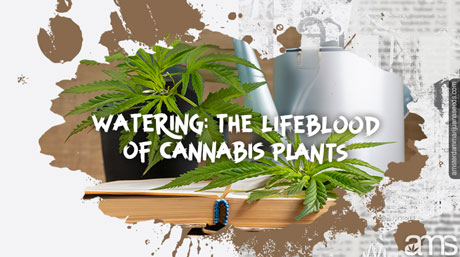
Growing marijuana is all about balance, and this couldn’t be truer when it comes to lighting and watering. These two elements are interconnected and must be synchronized for optimal growth. In this section, we will explore how your watering schedule should adjust based on the lighting conditions, and vice versa.
Every plant is unique, and your marijuana plants are no different. Growing weed, require keen observation, and adaptability. Over time, you will learn to interpret the signals your plants give off when they are stressed or need attention. This part will guide you through the process of identifying signs of distress related to lighting and watering and will provide practical solutions to address these issues.
In conclusion, the journey of cannabis growing, from selecting the right marijuana seeds to nurturing the seedlings with the perfect balance of light and water, can be incredibly rewarding. It’s both a science and an art, one that calls for knowledge, passion, and patience. As you move forward, you will continuously learn and refine your growing skills, perfecting the art of balance between light and water for healthier, more robust plants.
Properly storing weed seeds is crucial, especially if you plan to preserve their viability for an extended period, even over a year. To ensure the longevity of your marijuana seeds, it is essential to store them in a cool, dark, and dry environment. Airtight containers, such as glass jars or sealable bags, help protect the seeds from moisture and light exposure, which can degrade their quality. Additionally, storing cannabis seeds in the refrigerator or freezer can further extend their shelf life. By employing proper storage techniques, you can maintain the integrity and viability of your seeds, preserving them for future cultivation projects and ensuring their potential for successful germination and growth.
Recognizing ripe cannabis seeds is a valuable skill that can help ensure the quality and success of your cultivation efforts. Ripe seeds are essential for obtaining viable and healthy plants. When examining seeds for ripeness, look for signs such as a dark, mature color, often ranging from brown to black. Ripe seeds are also firm to the touch and may have subtle mottling or patterning. In contrast, unripe seeds tend to be lighter in color, softer, and may exhibit a greenish hue. By distinguishing between ripe and unripe weed seeds, you can selectively collect and utilize the best seeds for your cultivation projects, increasing the likelihood of a successful and fruitful harvest.
Embrace the journey, learn from your experiences, and remember – every challenge you overcome is a step closer to a successful harvest.
Happy growing!
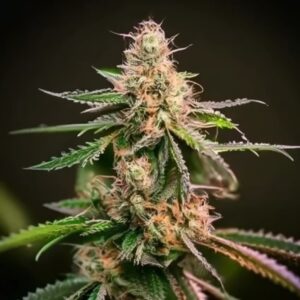


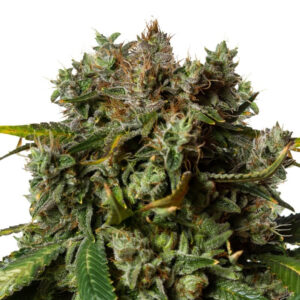

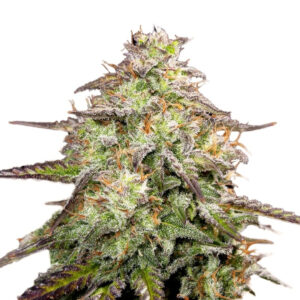
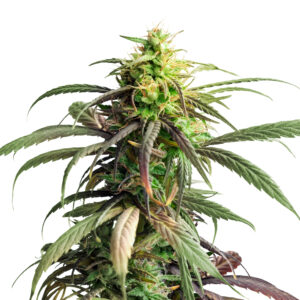






Related Posts
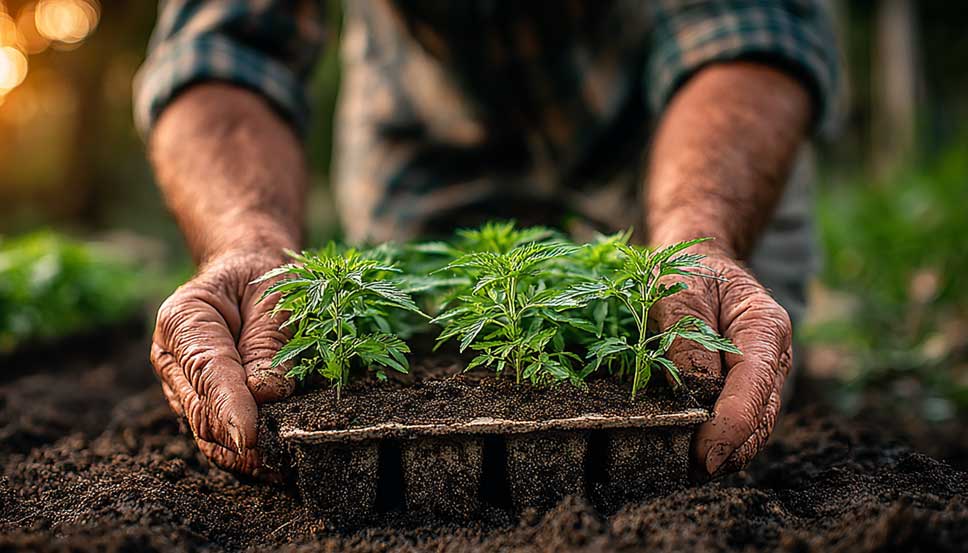
Unlock the secrets of the cannabis grow season, knowing exactly when to transplant your seedlings outdoors and how to harness natural light cycles. Strategic timing and strain selection ensure healthier plants and maximized yields.
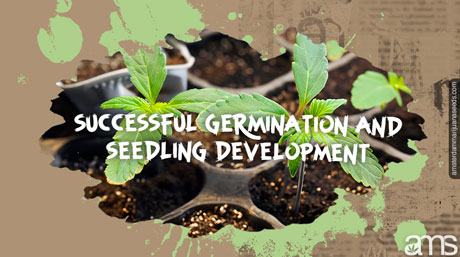
This article refers to the following topics: germinated cannabis seedling, germinated marijuana seedlings, parts of germinated cannabis seedling, germinated marijuana seedlings growth, soil for germinated cannabis seedlings, seedling germinated marijuana seeds, germination and seedling development in cannabis, from germination to marijuana seedling.
In this article, you will find answers to the following questions: what to do when cannabis seeds have…
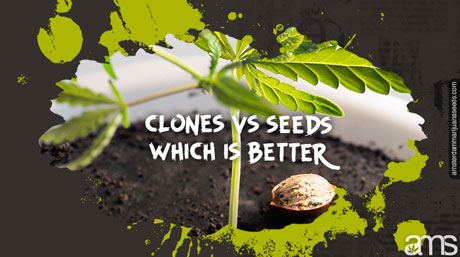
When it comes to cannabis cultivation, growers often face a critical decision: whether to use clones or seeds. Each method has its advantages and considerations, and understanding the differences can help you make an informed choice for your cannabis garden. In this article, we will explore the pros and cons of both clones and seeds, allowing you to determine which option suits your needs best.